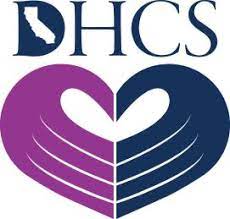When an individual has a substance use disorder, social skills, family dynamics, socio-economic status, and psychological problems can all be affected. Group therapy works to tackle these issues either directly or indirectly in a peer setting. According to the National Institute of Health, there are five primary models for group therapy for substance abuse treatment:
Cognitive-Behavioral Groups
Cognitive-behavioral therapy is a common tool used at the beginning of an individual’s treatment for drug abuse. Participants learn to change pre-conceived thinking patterns which take the form of opinions, assumptions, thoughts, or beliefs. These thinking patterns are not useful in helping the person cope with their lives.
The individual is able to change the way they see themselves or others by shedding false beliefs. Then they are able to change negative behaviors that lead to substance abuse.
Cognitive-behavioral group therapy also emphasizes the development of social networks. These are meant to support the individual as they lead a life of sobriety. They will also learn to become more aware of behaviors that lead to relapse.
Psychoeducational Groups
These groups are designed to teach greater awareness about substance abuse. They tend to occur in structured settings where participants learn about substance abuse. As well as its consequences, and the behaviors associated with it that disrupt a person’s life. Trained facilitators use lectures, videos, podcasts, and other forms of presenting the material in order to facilitate discussion.
Interpersonal Group Therapy or “Therapy Groups”
Therapy groups with these names refer to psychodynamic group therapy for addiction treatment. These groups are originally based on Freud’s theories of psychoanalysis established in the early part of the twentieth century. They have been modified to take the form of psychodynamic group therapy. This type of group therapy focuses on making changes within the individual and between people.
Skills Development Groups
This group focuses on life skills. Many skills development groups are based on a cognitive-behavioral approach. This is the assumption that the participants need to change dysfunctional thought patterns in order to change their behavior. Leaders of this type of group therapy may come from various backgrounds and apply different techniques.
They focus on coping skills, specifically cultivating participants’ skills to live a substance-free life. This focus can take a broader approach relevant to living a life of sobriety. The approach can also address issues such as problem-solving or anger management.
Support Groups
Although support groups come from the self-help tradition, they may be group-facilitated or led by a trained leader. They emphasize providing support, exercising unconditional positive regard, and actively listening. While drawing from each participant’s personal experiences and reflections to help each other live a life free of addiction.
Unlike other groups described above, support groups primarily emphasize providing support in a group environment. As opposed to attempting to analyze the roots of an individual’s path to addiction recovery.
Support groups for rehab may include 12-step programs such as Alcoholics Anonymous and Narcotics Anonymous. They also include groups for specific populations with shared experiences, such as women’s groups. And also include check-in groups that encourage each member to share their thoughts and feelings in a general way.
Non-expressive groups
This is a term for groups that come together for art therapy, music therapy, or a dance therapy session. They are non-expressive in that members are guided within a group to express themselves through an artistic medium. This is used rather than talking, sharing, and verbal processing.


